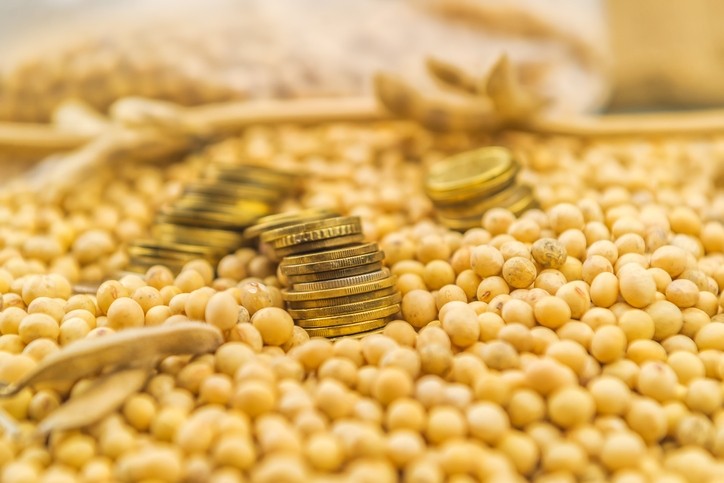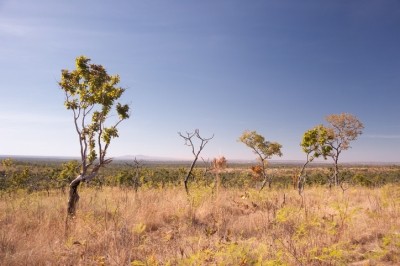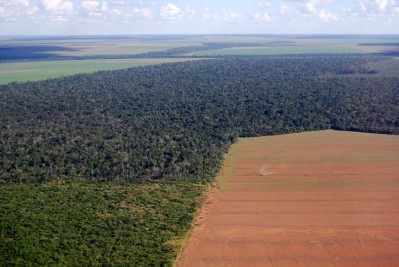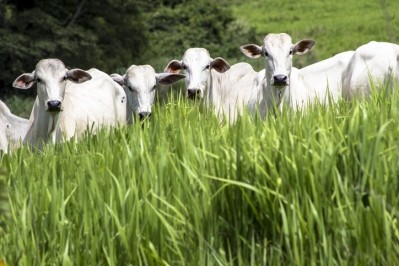Extending the Soy Moratorium to the Cerrado would deliver results: NGO

"We’ve seen that mechanism and the Cattle Moratorium work in the Brazilian Amazon, and are also seeing a similar mechanism deliver results in the palm oil industry. Unfortunately, especially in the Cerrado, the Forest Code is not a strong vehicle to deliver reductions in deforestation. In the first place, the Forest Code only requires protection of 20-35% of Cerrado land, compared to 80% in the Amazon.
"But even in the Amazon, the Forest Code has not been anywhere near as effective as the Soy Moratorium in reducing deforestation," Glenn Hurowitz, CEO of Mighty Earth, told us.
Both the Soy Moratorium and the Cattle Moratorium predate one of the main tools of Brazil's Forest Code, the Rural Environment Registry (CAR), but he said they were still effective even before that legislation came in.
"We have also seen success at reducing deforestation through similar mechanisms in other countries without the CAR."
Hurowitz was reacting to the recent comments made by Jun Lyu, chair of COFCO. That Chinese state owned agri-commodity trader announced its support for an extension of collective efforts like the Amazonian Soy Moratorium to the other forest and savannah regions of South America.
In an article published late last month, as part of the World Economic Forum Annual Meeting in Davos in Switzerland, Lyu noted: “Collaborative efforts like the Soy Moratorium, an agreement to prohibit trading soy derived from Amazon land deforested after 2008, have turned the tide on soy-related Amazon deforestation. Collective efforts now need to be extended beyond [the] Amazon to other equally fragile soy production regions, such as the Cerrado."
Hurowitz said he has seen clear signs of COFCO’s commitment to act in relation to stopping soy-linked deforestation in Brazil. Mighty Earth has been advising the Chinese trader in terms of implementation of its sustainability policies.
“COFCO has recognized that you don’t need deforestation to supply China’s food. In calling for an expansion of the highly successful Amazonian Soy Moratorium to other endangered ecosystems in South America, COFCO has joined industry leaders Louis-Dreyfus and Wilmar," said Hurowitz.
Lyu also acknowledged the benefits of encouraging soy cultivation on pastures already cleared for cattle farming.
“Over 25 million hectares of such land exists in the Cerrado. With the right incentives for farmers, including compensation for no deforestation, we may prevent further conversion of virgin forests and native vegetation.”
The Cerrado Working Group is actively exploring this aspect, he said, by bringing soy traders, consumer companies, financial institutions and civil society organizations towards a viable incentive plan. “We look forward to reporting on progress on this in the coming months.”
Scientific studies have shown that continued deforestation in South America will dramatically reduce soy harvests within 25 years, added Hurowitz. That research has also demonstrated that agriculture can be expanded on Latin America’s more than one billion acres of degraded land without threatening native ecosystems or climate, he said.
Forest Code is effective, say trade groups
The environmental legislation in Brazil is robust and is making inroads, other parties argue.
In an interview with this publication late last year, the EU Feed Manufacturers' Federation (FEFAC) said it sees genuine progress being made on the ground in Brazil in relation to full implementation of the Forest Code in all the biomes, both as regards farm registrations and on the surveillance side, with soy linked deforestation on the decline:
“The most compelling numbers that we got from [Brazilian soy producer trade group] ABIOVE is that the relative contribution of soy to deforestation in the Amazon is less than 2% and in the Cerrrado, less than 7% and falling. It is also fully behind the story that any further expansion of soy in the Cerrado can take place on degraded grasslands only.”
In a 2016 publication by ABIOVE, the soy trade group emphasized the role of the soy private sector in contributing to a reduction in deforestation, but not in the form of a moratorium.
"The private sector needs to promote Brazil’s Forest Code and its main tools, the CAR and the Environmental Regularization Program (PRA). Brazil now has strict and comprehensive environmental legislation, and has the means of fighting illegal deforestation. It is the private sector’s duty to acquire or finance soy from farms that are registered with CAR, that issue the proper invoices for their products, that are not included in the embargoed areas listing published by the Brazilian Environmental and Renewable Natural Resources Institute (IBAMA) ...
"In addition, the Cerrado has considerable acreage of degraded pastures that could be used for soy crops, without needing to clear new areas."








